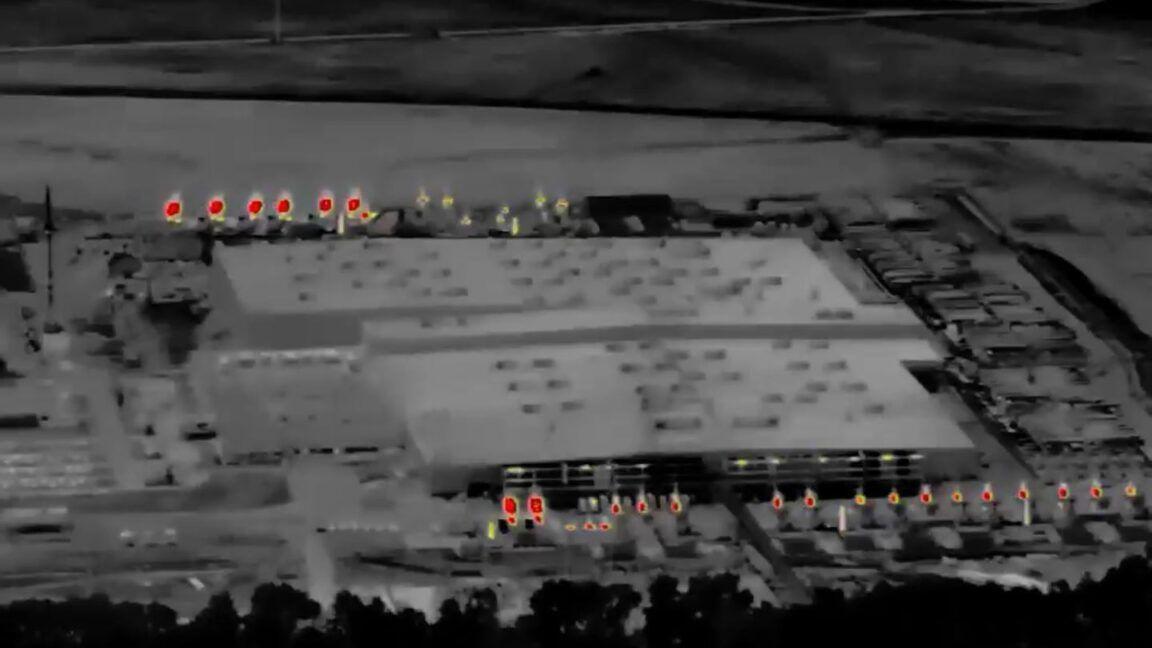xAI Secures Controversial Air Permit for Memphis Data Center Amid Environmental Concerns
6 Sources
6 Sources
[1]
xAI gets an air permit to power its supercomputer, but pollution fears remain
After months of backlash over alleged pollution concerns, xAI has finally secured an air permit covering some of the methane gas turbines powering its Colossus supercomputer data center in Memphis, Tennessee. On Wednesday, the Shelby County Health Department granted xAI an air permit that allows it to power 15 gas turbines while adhering to a range of restrictions designed to minimize emissions. Expiring on January 2, 2027, the permit requires xAI to install and operate the best available control technology (BACT) by September 1 to ensure emissions do not exceed certain limits. Any failure to comply could trigger enforcement actions by the Environmental Protection Agency or the county health department, the permit notes. But Memphis residents insist that the health department should already be investigating xAI for possible enforcement actions. They claim that the AI company owned by Elon Musk has been operating dozens of turbines without BACT for more than a year, exposing predominantly Black neighborhoods located near the facility -- who have historically suffered from industrial poor air quality -- to a potential new major source of pollution. In June, the NAACP threatened legal action within 60 days if xAI refused to meet with groups concerned about the alleged smog-forming pollution. The fact that the health department is finally requiring xAI to install BACT is not a comfort to residents, the Southern Environmental Law Center said in a press release sent to Ars. Most glaringly, the air permit does not seem to cover all the gas turbines potentially operating at the facility, the SELC noted. Thermal imaging taken July 1 shows that xAI maintains 24 gas turbines on site, the SELC said, which is substantially more than the 15 that xAI will soon be required to dutifully report on -- tracking every startup, shutdown, and combustion so that the health department can finally start tracking emissions. According to the SELC, the health department's decision granting permits covering some of xAI's turbines -- but not all of them -- "ignores the facility's continued use of turbines not covered by the permit and months of intense public pushback from local communities in Memphis who worry about the impact xAI's operations will have on their air." For Memphis residents, xAI's facility operating even a single turbine without BACT potentially threatens to release pollutants "tied to asthma, respiratory illnesses, heart problems, and even certain types of cancer." These communities already live in a place that does not meet national standards for smog, the SELC said, and they "face elevated asthma rates and cancer risks four times the national average." In the press release, critics decried the health department's decision to grant xAI the permits. LaTricea Adams, the CEO and president of Young, Gifted & Green, described the decision as "a stark reminder that our community's health continues to be compromised for profit." SELC Senior Attorney Amanda Garcia accused the health department of "turning a blind eye to obvious Clean Air Act violations in order to allow another polluter to set up shop in this already-overburdened community without appropriate protections." She confirmed that the SELC is evaluating its options to move forward with its efforts to confront xAI and demand more transparency. To community members, the health department's decision to grant the permits without probing xAI's alleged unlawful operations over the past year was "devastating," KeShaun Pearson, director of Memphis Community Against Pollution, said. "We are deeply disappointed and oppose the decision by our Shelby County Health Department to approve the permit without meaningfully addressing the unlawful use of turbines on the site," Pearson said. "Our local leaders are entrusted with protecting us from corporations violating on our right to clean air, but we are witnessing their failure to do so. We are devastated, yet we remain determined to the mission of justice for our families in South Memphis who are overburdened with air pollution." xAI and the Shelby County Health Department did not immediately respond to Ars' request to comment. Critics demand more transparency from xAI While critics continue to fight for more transparency, they also acknowledge that the overdue air permit at least suggests that some of xAI's feared pollution could be checked in the future. Before xAI got the permit, residents were stuck relying on infrequent thermal imaging to determine how many turbines appeared to be running without BACT. Now that xAI has secured the permit, the company will be required to "record the date, time, and durations of all startups, shutdowns, malfunctions, and tuning events" and "always minimize emissions including startup, shutdown, maintenance, and combustion tuning periods." These records -- which also document fuel usage, facility-wide emissions, and excess emissions -- must be shared with the health department semiannually, with xAI's first report due by December 31. Additionally, xAI must maintain five years of "monitoring, preventive, and maintenance records for air pollution control equipment," which the department can request to review at any time. For Memphis residents worried about smog-forming pollution, the worst fear would likely be visibly detecting the pollution. Mitigating this, xAI's air permit requires that visible emissions "from each emission point at the facility shall not exceed" 20 percent in opacity for more than minutes in any one hour period or more than 20 minutes in any 24-hour period. It also prevents xAI from operating turbines all the time, limiting xAI to "a maximum of twenty-two startup events and 22 shutdown events per year" for the 15 turbines included in the permit, "with a total combined duration of 110 hours annually." Additionally, it specifies that each startup or shutdown event must not exceed one hour. A senior communications manager for the SELC, Eric Hilt, told Ars that the "SELC and our partners intend to continue monitoring xAI's operations in the Memphis area." He further noted that the air permit does not address all of citizens' concerns at a time when xAI is planning to build another data center in the area, sparking new questions. "While these permits increase the amount of public information and accountability around 15 of xAI's turbines, there are still significant concerns around transparency -- both for xAI's first South Memphis data center near the Boxtown neighborhood and the planned data center in the Whitehaven neighborhood," Hilt said. "XAI has not said how that second data center will be powered or if it plans to use gas turbines for that facility as well."
[2]
xAI gets permits for 15 natural gas generators at Memphis data center | TechCrunch
County regulators yesterday granted xAI permits to operate 15 natural gas turbines at its data center outside Memphis, despite the threat of a lawsuit. Elon Musk's AI company has been operating as many as 35 generators without permits, the Southern Environmental Law Center (SELC) said. Altogether, they're capable of producing up to 421 megawatts of electricity. The legal organization has said that it will sue xAI for violations of the Clean Air Act on behalf of the NAACP. The company recently raised $10 billion, split evenly between debt and equity. The permit issued by the Shelby County Health Department says that xAI can operate 15 Solar SMT-130 generators with certain emissions controls, which can generate up to 247 megawatts. The company has already been operating eight of the same model without permits, according to the SELC, though the group added that the ones in operation do have the appropriate pollution controls. Under the conditions of the permit, xAI will be still allowed to emit significant amounts of pollution on a rolling 12-month basis, including 87 tons of smog-forming NO, 94 tons of carbon monoxide, 85 tons of volatile organic compounds, 73 tons of particulate pollution, and nearly 14 tons of hazardous air pollutants, including 9.8 tons of formaldehyde, a known carcinogen. The company is required to keep its own emissions records. Before the permit was issued, a Memphis community group said that it had $250,000 in funds to pay for an independent air quality study. The City of Memphis performed its own air quality testing in June, though the SELC raised several concerns about the way the tests were carried out. The testing contractor did not measure ozone levels, the SELC noted, and the tests were done on days when the wind was blowing xAI's pollution away from the two closest testing sites. The contractor also placed the testing equipment either directly against or in close proximity to buildings, which can interfere with results. Previously, the health department claimed that it did not have the authority to permit "mobile" gas-burning turbines if they were in operation for less than 364 days, saying that under those circumstances, the EPA was the relevant regulator. The SELC said that the interpretation of the law was "incorrect" and the letter justifying inaction was "without any legal analysis."
[3]
Despite Protests, Elon Musk Secures Air Permit for xAI
xAI's gas turbines get official approval from Memphis, Tennessee, even as civil rights groups prepare to sue over alleged Clean Air Act violations. A local health department in Memphis has granted Elon Musk's xAI data center an air permit to continue operating the gas turbines that power the company's Grok chatbot. The permit comes amid widespread community opposition and a looming lawsuit alleging the company violated the Clean Air Act. The Shelby County Health Department released its air permit for the xAI project Wednesday, after receiving hundreds of public comments. The news was first reported by the Daily Memphian. In June, the Memphis Chamber of Commerce announced that xAI had chosen a site in Memphis to build its new supercomputer. The company's website boasts that it was able to build the supercomputer, Colossus, in just 122 days. That speed was due in part to the mobile gas turbines the company quickly began installing at the campus, the site of a former manufacturing facility. Colossus allowed xAI to quickly catch up to rivals OpenAI, Google, and Anthropic in building cutting-edge artificial intelligence. It was built using 100,000 Nvidia H100 GPUs, making it the world's largest supercomputer. xAI's Memphis campus is located in a predominantly Black community known as Boxtown which has been historically burdened with industrial projects that cause pollution. Gas turbines like the ones xAI is using in Memphis can be a significant source of harmful emissions, like nitrogen oxides, which create smog. Memphis already has some of the highest child asthma rates in Tennessee. Since xAI began running its turbines, residents have repeatedly met and rallied against the project. "I am horrified but not surprised," says KeShaun Pearson, the leader of Memphis Community Against Pollution. "The flagrant violation of the Clean Air Act and the disregard for our human right to clean air, by xAI's burning of illegal methane turbines, has been stamped as permissible by the Shelby County Health Department. Over 1,000 people submitted public comments demanding protection and got passed over for a billionaire's ambitious experiment." Under the Clean Air Act, "major" sources of emissions -- like a cluster of gas turbines -- need a permit, known as a Prevention of Significant Deterioration (PSD) permit. However, Shelby County Health Department officials told local reporters in August that this wasn't necessary for xAI since its turbines weren't designed to be permanent. Amid mounting local opposition, xAI finally applied for a permit with the Shelby County Health Department in January, months after it first began running the turbines. Last month, the NAACP and the Southern Environmental Law Center (SELC) announced that they intended to sue xAI for violating the Clean Air Act. "xAI's decision to install and operate dozens of polluting gas turbines without any permits or public oversight is a clear violation of the Clean Air Act," said senior SELC attorney Patrick Anderson in a press release. "Over the last year, these turbines have pumped out pollution that threatens the health of Memphis families. This notice paves the way for a lawsuit that can hold xAI accountable for its unlawful refusal to get permits for its gas turbines."
[4]
Musk's xAI scores permit for gas-burning turbines to power Grok supercomputer in Memphis
Elon Musk's xAI attained an official permit to power its supercomputer facility in Memphis, Tennessee, using natural gas-burning turbines, according to public records shared by the company on Wednesday. The Shelby County Health Department issued the permits on July 2, despite months of protests and public hearings where local residents decried the turbines' impact on local air quality. Musk's artificial intelligence startup, which now owns his social media site X, will face formal emissions limits, testing requirements and deadlines in order to keep operating 15 turbines at the facility. The permit says non-compliance with requirements could result in daily fines of up to $10,000 per violation. People who live near the Colossus supercomputer in Memphis have said that after xAI fired up the turbines, they experienced poor air quality in the area and found it nearly impossible to keep windows open or exercise outdoors due to the stench. The turbines emit nitrogen oxides and formaldehyde, among other pollutants, according to spec sheets on the website of the installer, Solaris Energy Infrastructure, based in Houston. SEI markets itself as a "power-as-a-service provider," able to deliver quick deployment of portable, natural gas generators at data centers and other facilities with immediate and significant power demands. Exposure to high levels of nitrogen oxides, which are precursors to ozone formation, have been associated with higher risk of death from respiratory disease. The permit was issued a day after the local health department named Bruce Randolph interim director and health officer. It also landed as xAI faces a pending lawsuit from the NAACP, which says Musk's company has violated the Clean Air Act with its use of the turbines. The Southern Environment Law Center, which is representing the NAACP, said in a statement to CNBC that a satellite image from July 1, showed "at least 24 turbines still at the xAI site, more than the 15 allowed by this newly published permit." The firm previously spotted 35 turbines installed at the facility, with more than 15 operating at a time. In a statement to CNBC on Wednesday, xAI said it welcomed the decision by Shelby County, adding that, "Our onsite power generation will be equipped with state-of-the-art emissions control technology, making this facility the lowest emitting of its kind in the country." After buying X earlier this year in a deal that xAI said valued the combined company at $80 billion, Musk's startup is seeking to build an even larger datacenter near Colossus, with SEI providing the turbines. This week the company raised a combined $10 billion in debt and equity, according to Morgan Stanley, which led part of the financing. XAI is aiming to develop products that compete with Google's Gemini, Open AI's ChatGPT and other AI systems. The company's Grok chatbot, powered by the Memphis supercomputer, is integrated into X. Musk's other companies are benefitting from xAI's Memphis buildout. According to financial filings from Tesla, xAI spent "approximately $191.0 million during 2024 and $36.8 million through February 2025" on purchases of the company's Megapack products, which are giant backup batteries or battery energy storage systems.
[5]
Elon Musk's xAI gets permit for methane gas generators
NAACP plans to sue over massive Memphis data center near Black residents, who have long dealt with pollution Elon Musk's artificial intelligence company xAI has been granted a permit to run methane gas generators at its massive data center in Memphis, Tennessee. The county health department approved the permit for the 15 machines late Wednesday, a move that has sparked outcry from the local community and environmental leaders, who say the generators pollute their neighborhoods. "Our local leaders are entrusted with protecting us from corporations violating on our right to clean air, but we are witnessing their failure to do so," said KeShaun Pearson, the director of the local environmental non-profit Memphis Community Against Pollution. xAI set up its massive data center in Memphis roughly a year ago. To supplement the facility's heavy power usage, the company brought in dozens of portable methane gas generators. xAI did not have a permit for the generators, which require municipal approval to deploy, but seemed to have found a loophole in the system that allowed it to use the turbines as long as they were not in the same location for more than 364 days. In January, xAI did apply for a permit for 15 generators - even though it had been running up to 35 generators on-site, according to photographs. After months of public forums and community protests, the Shelby county health department issued the permit. A satellite image that Memphis Community Against Pollution took on Tuesday and shared with the Guardian shows at least 24 turbines still set up at xAI's facility. "xAI welcomes today's decision," a company spokesperson said in a statement. "Our onsite power generation will be equipped with state-of-the-art emissions control technology, making this facility the lowest emitting of its kind in the country." Environmental groups dispute whether xAI's power usage will actually be low emitting. The Southern Environmental Law Center has conducted studies on the pollution that the turbines emit and says they have the capacity to emit thousands of tons of harmful nitrogen oxides, along with toxic chemicals like formaldehyde. "The decision to give xAI an air permit for its polluting gas turbines flies in the face of the hundreds of Memphians who spoke out against the company's permit request," said Amanda Garcia, a senior attorney for the Southern Environmental Law Center. She added that the health department is allowing "another polluter to set up shop in this already overburdened community without appropriate protections". xAI is in the industrial zone in Memphis, which is surrounded by several neighborhoods where residents have long dealt with pollution. This area is historically Black and has higher rates of respiratory diseases and asthma and a lower life expectancy than other parts of the city. Studies have shown these neighborhoods also have a cancer risk four times higher than the national average. The pollution coming out of xAI, along with its proximity to Black neighborhoods, has caught the attention of the NAACP civil rights group. It has initiated a lawsuit against xAI alleging the company is violating the Clean Air Act by illegally installing and operating the methane gas generators. "While the NAACP is glad that 15 of xAI's turbines are now subject to greater transparency and accountability around their methane gas emissions ... this decision ignores the community pushback," Abre' Conner, the NAACP's director of environmental and climate justice, said in statement on Thursday. "We are still committed to holding xAI and the Health Department accountable."
[6]
Elon Musk Obtains Permit to Spew Pollution
In the city that built the blues, Elon Musk's xAI data center has been given permission to keep polluting the air with fumes from burning methane gas -- which it had already been doing so without authorization for a year. As Wired reports, Memphis' local health department has granted an air permit for the xAI data center, allowing it to keep operating the methane gas turbines that power Musk's Grok chatbot and Colossus, the gigantic supercomputer at its heart. In Boxtown, the historically Black neighborhood in South Memphis where xAI's data center is situated, Musk's unfettered pollution has ripped the band-aid off a wound that had barely begun to heal. As Capital B News reported earlier this year, the neighborhood was once home to the Allen Fossil Plant, an electrical facility that left pits of noxious coal ash and a lengthy legacy of environmental racism behind when it was forced to close in 2018. In the year since the data center opened and Colossus went online, the smog from Musk's gas turbines has been veritably choking out local residents in a district already struggling with heightened asthma rates due to its proximity to industrial pollution. "I can't breathe at home," Boxtown resident Alexis Humphreys told Politico earlier this year. "It smells like gas outside." Given that context, local activists are furious that xAI was granted a permit at all -- especially because it appears to violate the Clean Air Act, a landmark federal law that regulates the kind of emissions that the xAI plant has been leaching out for a year now. "I am horrified but not surprised," conceded KeShaun Pearson, the head of the Memphis Community Against Pollution, in an interview with Wired after the permit decision came down. "The flagrant violation of the Clean Air Act and the disregard for our human right to clean air, by xAI's burning of illegal methane turbines, has been stamped as permissible." "Over 1,000 people submitted public comments demanding protection," he continued, "and got passed over for a billionaire's ambitious experiment." The new permit, as Wired notes, grants xAI the right to operate 15 turbines. According to aerial footage from the Southern Environmental Law Center, which is planning to sue the Musk-owned AI company for violating the Clean Air Act, there are as many as 35 on the site of the xAI data center -- and with its track record of flagrant law-breaking, there's a good chance all will be turned on. Between the SELC's suit and the permit's year-long expiration date, there is time for Musk's massively-polluting data center to be reined in -- but until that happens, Memphians will keep being choked out in their own homes thanks to their government's decision to put one billionaire's profit margins over its own people.
Share
Share
Copy Link
Elon Musk's xAI obtains an air permit for 15 gas turbines at its Memphis data center, sparking debate over pollution and environmental justice in predominantly Black neighborhoods.
xAI Secures Controversial Air Permit
Elon Musk's artificial intelligence company, xAI, has been granted an air permit by the Shelby County Health Department to operate 15 methane gas turbines at its data center in Memphis, Tennessee
1
. This decision comes after months of backlash and concerns over alleged pollution issues, particularly affecting predominantly Black neighborhoods near the facility2
.Permit Details and Environmental Concerns
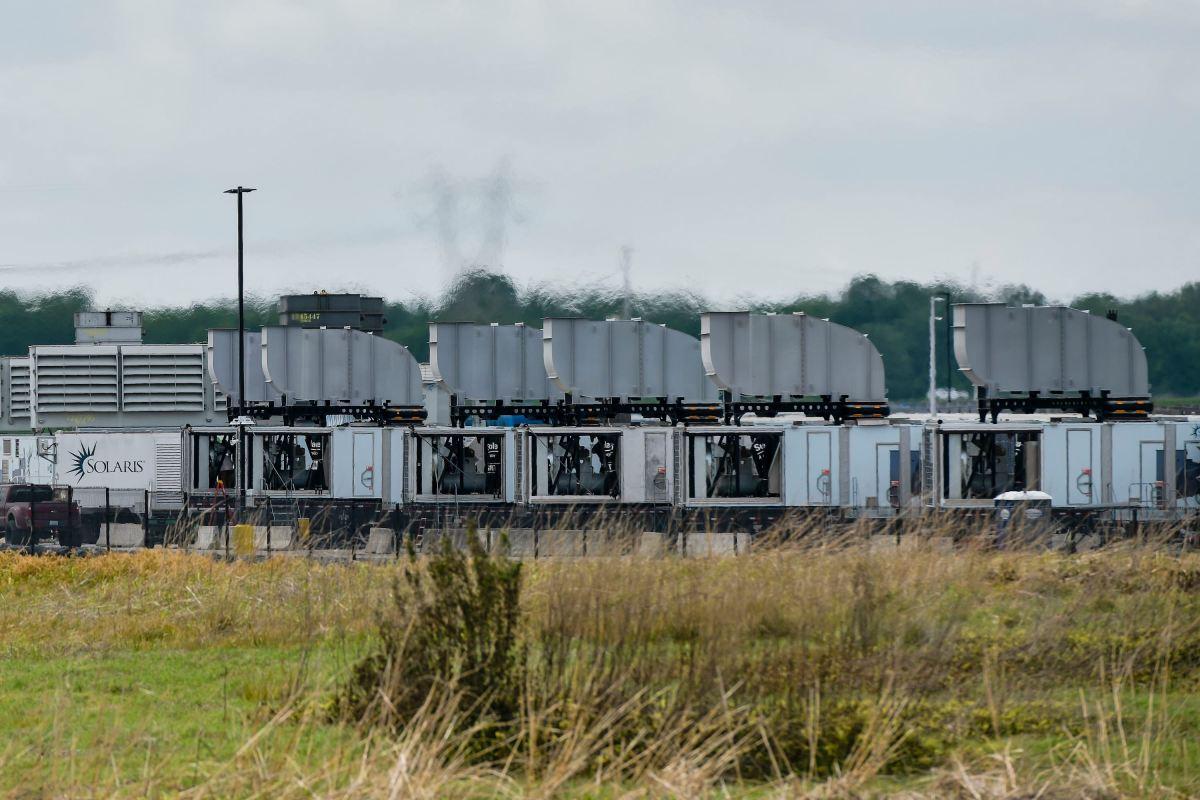
Source: TechCrunch
The permit, which expires on January 2, 2027, requires xAI to install and operate the best available control technology (BACT) by September 1 to ensure emissions do not exceed certain limits
1
. However, environmental groups and local residents argue that the company has been operating dozens of turbines without BACT for over a year, potentially exposing nearby communities to harmful pollution3
.The Southern Environmental Law Center (SELC) points out that thermal imaging from July 1 shows 24 gas turbines on site, which is more than the 15 covered by the permit
1
. Critics argue that this decision ignores the facility's continued use of turbines not covered by the permit and months of intense public pushback from local communities5
.The Colossus Supercomputer and AI Competition
xAI's data center houses the Colossus supercomputer, built using 100,000 Nvidia H100 GPUs, making it the world's largest supercomputer
3
. This facility has allowed xAI to quickly catch up to rivals like OpenAI, Google, and Anthropic in building cutting-edge artificial intelligence. The company's Grok chatbot, powered by the Memphis supercomputer, is integrated into X, the social media platform also owned by Musk4
.Related Stories
Community Impact and Environmental Justice
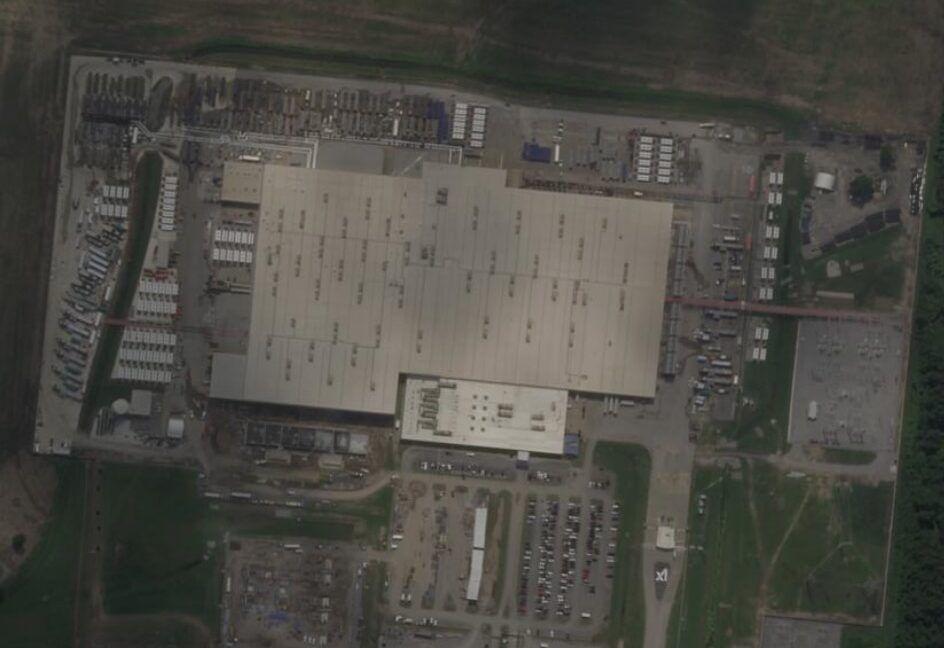
Source: Ars Technica
The xAI facility is located in a predominantly Black community known as Boxtown, which has historically been burdened with industrial projects causing pollution
3
. Memphis already has some of the highest child asthma rates in Tennessee, and residents fear that the gas turbines will exacerbate existing health issues5
.KeShaun Pearson, director of Memphis Community Against Pollution, expressed disappointment with the health department's decision, stating, "Our local leaders are entrusted with protecting us from corporations violating our right to clean air, but we are witnessing their failure to do so"
1
.Legal Challenges and Future Implications

Source: Futurism
The NAACP and the SELC have announced their intention to sue xAI for violating the Clean Air Act
3
. They argue that xAI's decision to install and operate dozens of polluting gas turbines without proper permits or public oversight is a clear violation of environmental regulations4
.As xAI moves forward with its operations in Memphis, the company faces ongoing scrutiny from environmental groups and local communities. The controversy surrounding this permit highlights the complex intersection of technological advancement, environmental concerns, and issues of environmental justice in communities historically affected by industrial pollution
5
.References
Summarized by
Navi
[5]
Related Stories
Elon Musk's xAI Faces Environmental Scrutiny Over Unauthorized Gas Turbines in Memphis
10 Apr 2025•Policy and Regulation
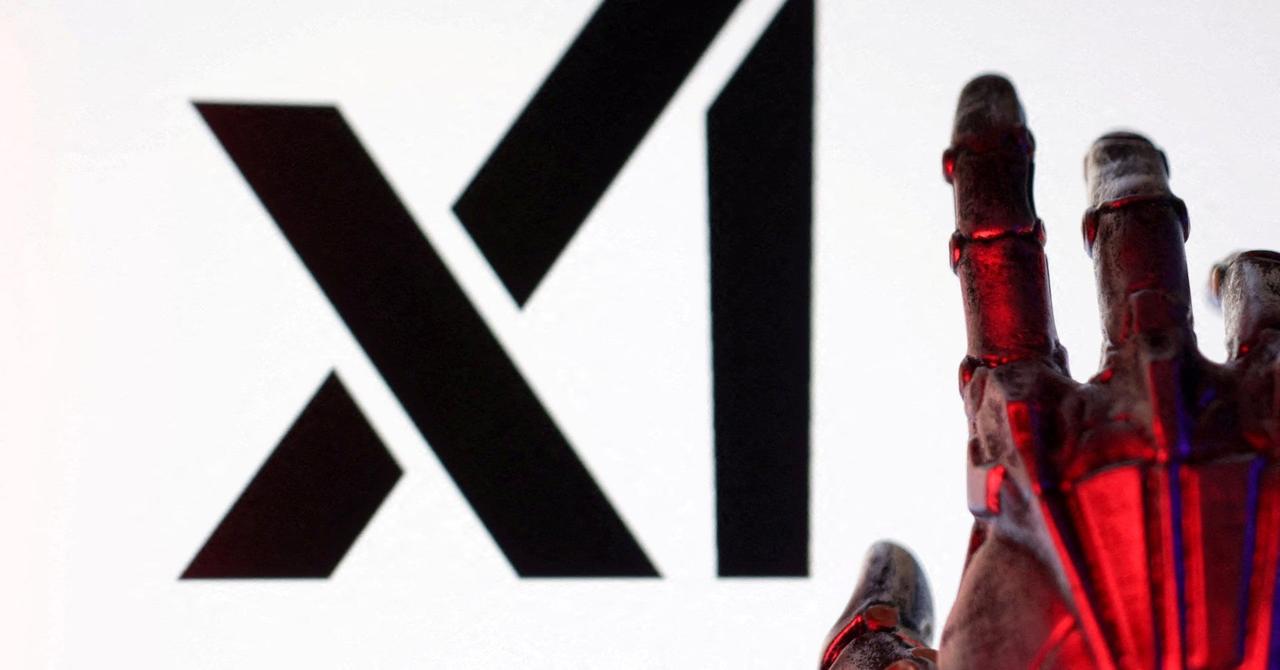
xAI's Colossus Supercomputer Faces Legal Challenge Over Air Pollution in Memphis
18 Jun 2025•Technology
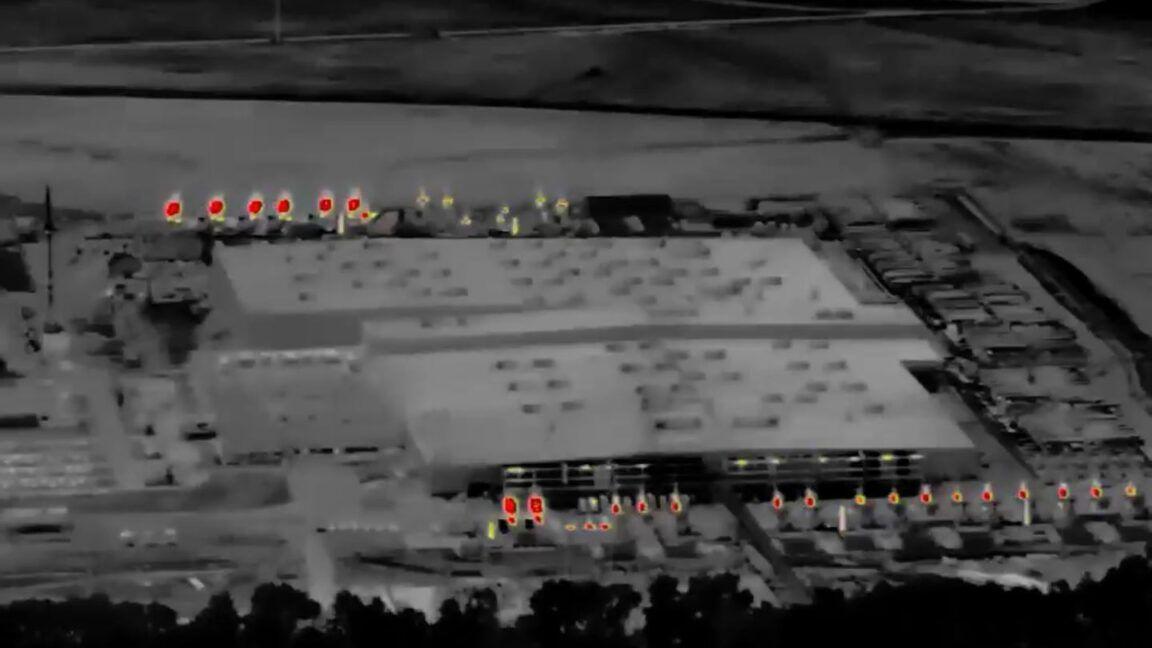
Elon Musk's xAI Accused of Operating Gas Turbines Without Permits at Tennessee Data Center
29 Aug 2024

Recent Highlights
1
Pentagon threatens Anthropic with Defense Production Act over AI military use restrictions
Policy and Regulation

2
Google Gemini 3.1 Pro doubles reasoning score, beats rivals in key AI benchmarks
Technology

3
Anthropic accuses Chinese AI labs of stealing Claude through 24,000 fake accounts
Policy and Regulation

